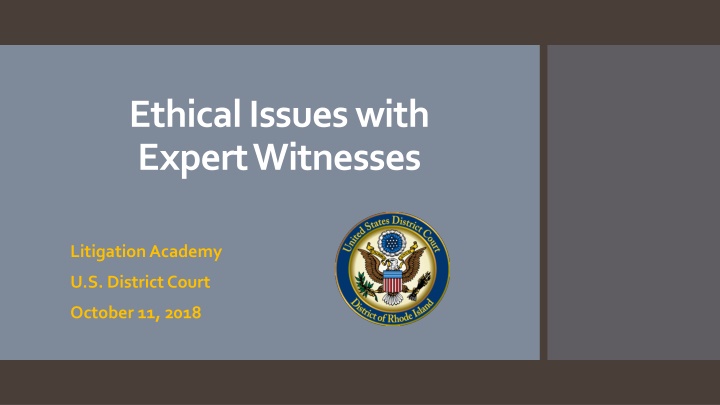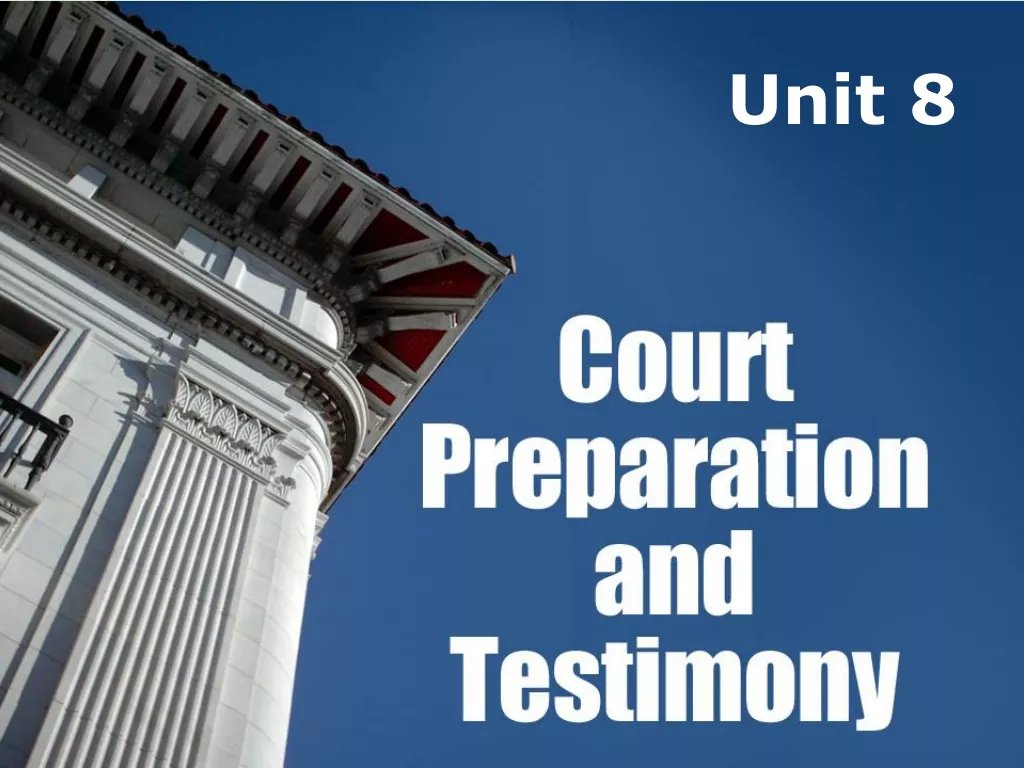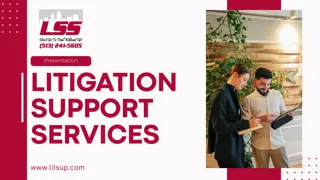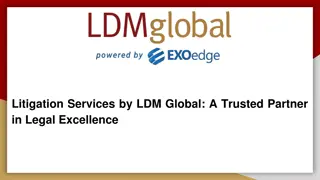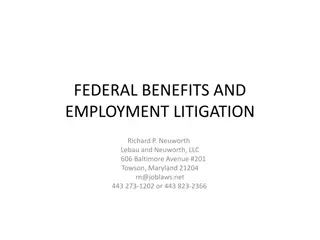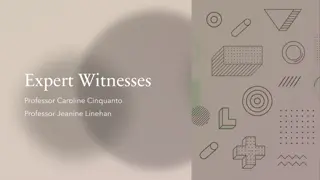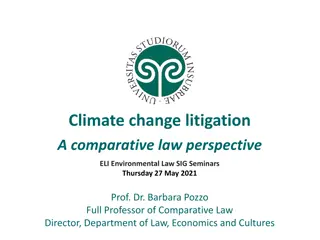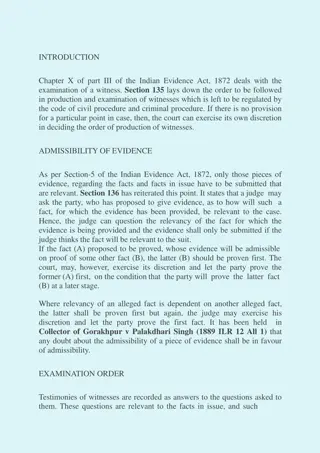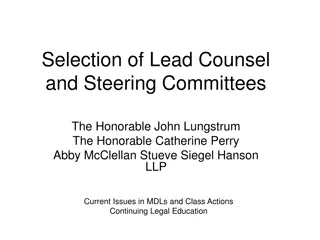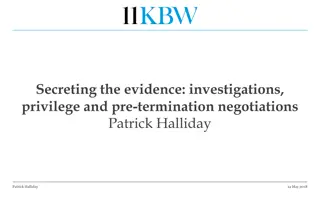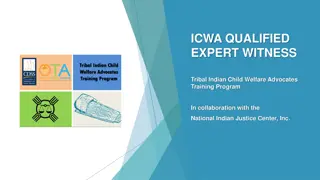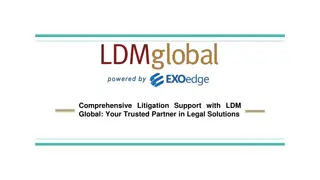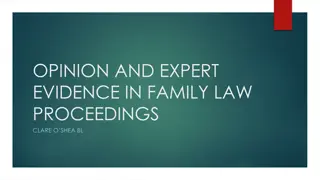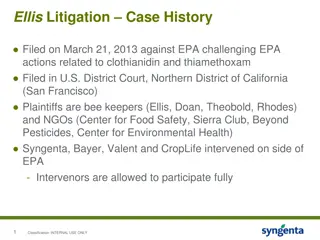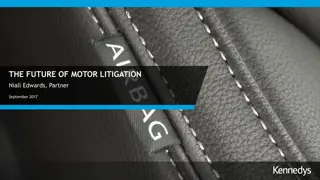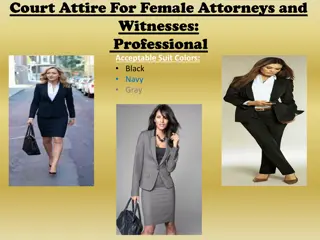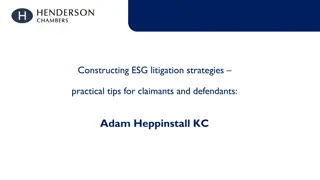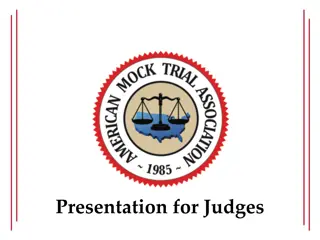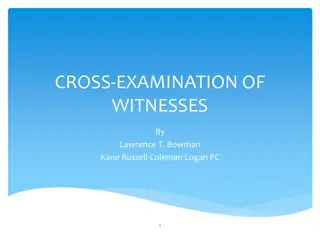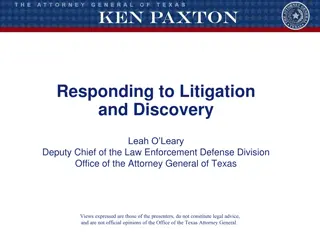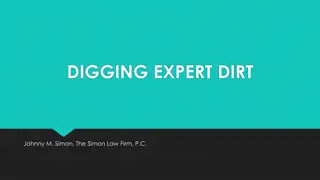Ethical Issues with Expert Witnesses in Litigation
This article discusses ethical considerations related to expert witnesses in litigation, highlighting the differences in roles between lawyers and experts. It emphasizes the importance of truthfulness and independence for expert witnesses, along with their qualifications and the sources they may rely upon when testifying. The American Bar Association (ABA) guidance is also provided regarding the duty of loyalty and advocacy for expert witnesses compared to attorneys.
Download Presentation

Please find below an Image/Link to download the presentation.
The content on the website is provided AS IS for your information and personal use only. It may not be sold, licensed, or shared on other websites without obtaining consent from the author.If you encounter any issues during the download, it is possible that the publisher has removed the file from their server.
You are allowed to download the files provided on this website for personal or commercial use, subject to the condition that they are used lawfully. All files are the property of their respective owners.
The content on the website is provided AS IS for your information and personal use only. It may not be sold, licensed, or shared on other websites without obtaining consent from the author.
E N D
Presentation Transcript
Ethical Issues with Expert Witnesses Litigation Academy U.S. District Court October 11, 2018
1. General Duties 2. Locating an Expert Witness 3. Fees 4. Disclosures 5. Omitting or Coloring Evidence 6. Disclosures of Client Confidences 7. Modifying Expert Reports Outline of Topics
Always Keep in Mind Litigation should be focused to the end that the truth may be ascertained Fed. R. Evid. 102 ~~~~~ Role of Lawyer vs. Role of Expert 1. General Duties Lawyer : zealous advocate for their client Expert: expected to tell the truth, regardless of how it effects the client on whose behalf she is testifying ABA says expert does not owe a duty to her client (Formal Opinion 97-407)
ABA: unlike attorneys, expert witnesses do not owe a duty of loyalty to their clients. An expert must remain independent from his or her client and not become the client s advocate. In essence, an expert must analyze, explain, and offer an accurate opinion of the relevant issue before the court, not strive to advocate and persuade the fact-finder of a certain point of view. The expert s main duty to provide truthful and accurate information comes from the court and the ethical guidelinesofhis professionalorganization, ifany. 14 Georgetown Journal of Legal Ethics 217 (2000) Expert s Role
Who May Testify As An Expert -Fed. R. Evid. 702 A witness who is qualified as an expert by knowledge, skill, experience, training, or education may testify in the form ofanopinionorotherwise if: (a) the expert s scientific, technical, or other specialized knowledge will help the trier of fact to understand the evidence or to determine a fact in issue; (b) the testimony is based on sufficient facts or data; (c) the testimony is the product of reliable principles andmethods; and (d) the expert has reliably applied the principles and methods tothe facts ofthe case. Expert s Role
Sources Upon Which Expert May Rely -Fed. R. Evid. 703 An expert may base an opinion on facts or data in the case that the expert has been made aware of or personally observed. If experts in the particular field would reasonably rely on those kinds of facts or data in forming an opinion on the subject, they need not be admissible for the opinion to be admitted. But if the facts or data would otherwise be inadmissible, the proponent of the opinion may disclose them to the jury only if their probative value in helping the jury evaluate the opinion substantially outweighs their prejudicial effect. Cantestify as toultimate issue Fed.R. Evid 704 Need notdisclose underlying facts Fed.R. Evid705 Expert s Role
Experts may have their own professional codes of conduct AMA, APA, etc. Expert s Role
Technical, Scientific, Medical Journals (authors) Google the topic Ask client Last resort expert witness ads/websites 2. Locating an Expert Witness
Rule 3.4. Fairness to Opposing Party and Counsel A lawyer shall not: (b) falsify evidence, counsel or assist a witness to testify falsely, or offer an inducement to a witness that is prohibited by law; Commentary- it is not improper to pay a witness expenses or to compensate an expert witness on terms permitted by law. The common law rule in most jurisdictions is that it is improper to pay an occurrence witness any fee for testifying and that it is improper to pay an expert witness a contingent fee. 3. Expert Fees
Retained or specially employed to provide expert testimony written report required. Fed. R. Civ. P. 26(a)(2)(B) Consulting expert no disclosure required. Fed. R. Civ. P. 26(a)(2)(C); 26(b)(4)(D) Draftsof any report or disclosure are protected. Fed. R. Civ. P. 26(b)(4)(B) 4. Disclosures
Rule 3.3. Candor Toward the Tribunal prevents a lawyer from falsifying evidence or assisting a witness in false testimony. This could affect expert testimony in two ways. First, it forbids an attorney to permit an expert witness to testify as an expert in an area that is not scientifically valid. Second, it forbids the lawyer to coax opinions from the expert that are beyond the realm of the expert s specialized knowledge. Such coaxing would result in unreliable testimony (from the false claim of expertise), as the expert would be testifying in an area in which she possesses no expertise. 5. Omitting or Coloring Evidence
Rule 1.6. Confidentiality of Information 6. Disclosures of Client Confidences (a) A lawyer shall not reveal information relating to the representation of a client unless the client gives informed consent, except for disclosures that are impliedly authorized in order to carry out the representation
Rule 8.4. Misconduct It is professional misconduct for a lawyer to: (c) engage in conduct involving dishonesty, fraud, deceit or misrepresentation; 7. Modifying Expert Reports ~~~~~ Any time an attorney finds themselves considering engaging in a conversation with the intent of minimizing certain facts or opinions, an attorney should reconsider in light of this rule.
